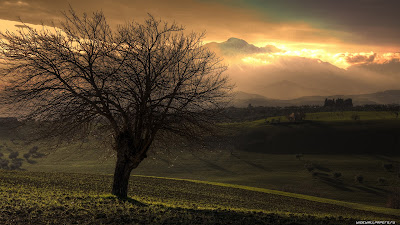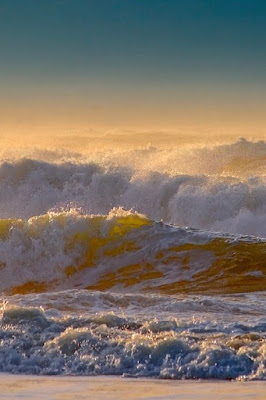The Virtues
of Fasting in the Summer
Ibn Rajab has a section in ‘Lata’if al-Ma’arif’
(p. 272-273) about the virtues of fasting during hot days. Since Ramadan will
start in the summer this year, this will be a good encouragement:
“…And from the acts of worship whose reward is
multiplied during the heat is fasting, and this is because of the thirst that
one experiences in the mid-day heat.
This is why Mu’adh bin Jabal expressed regret
on his deathbed that he would no longer experience this mid-day thirst, as did
other early Muslims.
And it was related that Abu Bakr would fast in
the summer and not fast in the winter, and ‘Umar advised his son ‘Abdullah on
his deathbed: “Try to obtain the characteristics of faith,” and the first one he
mentioned was fasting in the intense summer heat.
And al-Qasim bin Muhammad said that ‘A’ishah
would fast in the intense heat, and he was asked: “What drove her to do this?”
He replied: “She would take advantage of the days before death.” And some of the
righteous women would choose the hottest days and fast them, saying: “If the
price is low, everyone will buy,” meaning that she wanted to do those actions
that only a few were capable of due to how hard it was to do them, and this is
indicative of the high aspirations these women had.
And Abu Musa al-Ash’ari was on a boat, and he
heard someone calling out: “O passengers, stand up!” And he said this three
times. So, Abu Musa told him: “How can we stand up? Don’t you see where we are?
How can we stand up?” So, the caller said: “Let me tell you of a rule that Allah
made upon Himself: whoever makes himself thirsty for Allah’s sake on a hot day
has the right upon Allah to have his thirst quenched on the Day of
Resurrection.” So, Abu Musa would search out the days that were so hot that one
would feel he was being cooked, and he would fast those days.
Ka’b said that Allah Said to Musa: “I made it
incumbent upon Myself that whoever is thirsty for My sake will have his thirst
quenched on the Day of Resurrection,” and others said that it’s written in the
Torah: “Glad tidings for whoever makes himself hungry in anticipation of the
Great Day where he will have his hunger satisfied, and glad tidings for whoever
makes himself thirsty in anticipation of the Great Day where he will have his
thirst quenched.”
al-Hasan said: “A maiden of Paradise will speak
to the wali of Allah while he is laying with her on the shore of a river of
honey in Paradise while she hands him a glass of the sweetest drink, and she
will ask him: “Do you know what day Allah married me to you? He Saw you on a
long summer day while you were thirsty in the mid-day heat, and He called the
Angels and Said: “Look at My slave. He has left his wife and pleasure and food
and drink for Me out of his desire for what I have for him. Bear witness that I
have Forgiven him,” and He Forgave you on that day and married you to
me.”"
And when ‘Amir bin ‘Abd Qays went from Basrah
to Sham, Mu’awiyah would ask him to tell him what he needed. He refused to ask
of him, and eventually said: “All I need is for you to return the heat of Basrah
to me to make the fasting a bit harder, as it is too easy in your
lands.”
And al-Hajjaj was on a journey between Makkah
and Madinah. He pulled out his dinner and invited a bedouin to eat with him, and
the bedouin said: “I have been invited by One who is better than you and I have
accepted the invitation.” He asked: “And who is this?” The man replied: “Allah
invited me to fast, and I fasted.” al-Hajjaj asked: “On this very hot day?” The
man replied: “Yes. I am fasting it in anticipation of a much hotter day.”
al-Hajjaj said: “So, eat today and fast tomorrow.” The man replied: “Only if you
can guarantee that I will live until tomorrow.” al-Hajjaj said: “This isn’t in
my hands.” The man said: “How can you ask me to do something now when there is
something of the future that isn’t in your hands?”
And Ibn ‘Umar went on a trip once with some
companions, and they saw a sheep-herder who they invited to eat with them. He
said: “I am fasting,” and Ibn ‘Umar said: “You are fasting in heat like this,
and while you are between all these plants and sheep?” The herder replied: “I’m
taking advantage of my remaining days.” Ibn ‘Umar was impressed by this reply
and said: “Can you sell one of your sheep to us? We’ll feed you from its meat
when you break your fast, and we’ll also pay you for it.” The herder said: “It
doesn’t belong to me. It belongs to my master.” Ibn ‘Umar said: “What would your
master say if you told him that it was eaten by a wolf?” The herder raised his
finger to the sky and said: “What about Allah?” Ibn ‘Umar kept repeating this
phrase that the herder was saying, and when he got to the city, he went to the
herder’s owner and bought him and his sheep from him. He then freed the herder
and gave him his sheep as a gift.
And Ruh bin Zinba’ was traveling between Makkah
and Madinah on a very hot day. A herder living on a mountain approached him, and
he said to him: “O herder, come eat with me.” The herder said: “I’m fasting.”
Ruh said: “You’re fasting in this heat?” The herder replied: “Should I let my
days pass by in vain?” ٍSo, Ruh said: “You have used your days wisely, O herder,
while Ruh bin Zinba’ has wasted his.”
And Ibn ‘Umar used to fast extra days until he
would almost faint, and this wouldn’t cause him to break his fast. And al-Imam
Ahmad would fast until he was about to pass out, and would wipe water over his
face. He was asked about fasting very hot days, and he replied: “There is
nothing wrong with wetting a towel to squeeze the water on himself to cool down
with.” And the Prophet (صلى الله عليه و سلم) would pour water over his head
while fasting.
ِAnd Abu ad-Darda’ would say: “Fast the very
hot days in anticipation of the Day of Resurrection, and pray two rak’at in the
darkness of night in anticipation of the darkness of the grave.” And it’s
reported in the two ‘Sahih’s that he said: “You have seen us with the Messenger
of Allah (صلى الله عليه و سلم) on some of his journeys on very hot days, and a
man would hold his hand against his head due to the intensity of the heat, and
none of them would be fasting except the Messenger of Allah and ‘Abdullah bin
Rawahah.” And the narration of Muslim states that Abu ad-Darda’ said: “This was
during the month of Ramadan.”
When those who fast for Allah in the heat are
patient despite their intense thirst, He will set aside a specific gate of the
gates of Paradise for them. This is the gate called Rayyan, and whoever enters
through it will drink, and whoever drinks after entering it will never be
thirsty again. When they enter through it, it will be locked for those after
them, and none will enter through it except them…”


